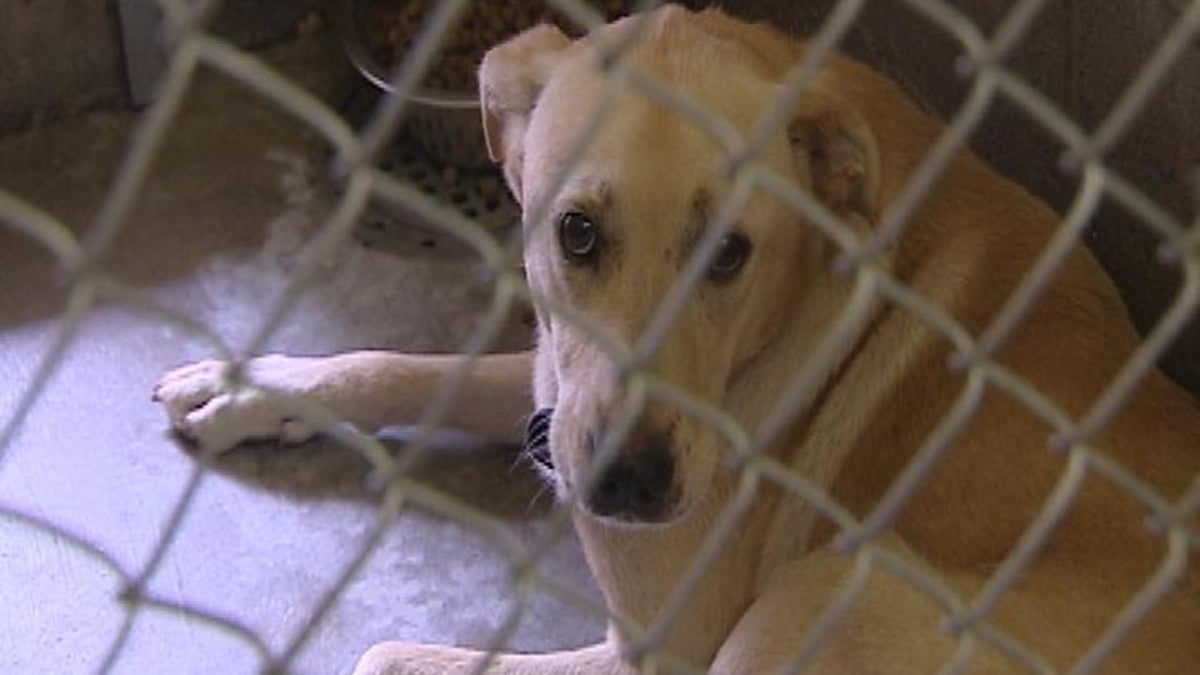No-kill Delaware within reach? [video]

Safe Haven Animal Sanctuary’s struggles to balance its no-kill philosophy with its animal control duties begs the question, Is Delaware ready to be a no-kill state?
Kent County has since terminated its contract with the Georgetown shelter, effective Oct. 1, but Safe Haven says it lost the contract not because it was doing a bad job, but because it took on too much too soon.
Safe Haven’s interim executive director, Bob Burakiewicz, says the shelter took on Kent County’s animal control contract a month after opening its doors. In the first six months, animal control officers brought in 140 dogs and Safe Haven just couldn’t keep up. Burakiewicz says the shelter accrued $200,000 in debt; private kenneling for some of the dogs accounted for $53,000 of it.
“There’s a business side to running a nonprofit organization. And so there was a clash of culture from saving every animal and fiscal responsibility,” said Kevin Usilton, executive director of Kent County SPCA.
Usilton’s shelter handles animal control for New Castle and Sussex Counties and is not no-kill. At one time, Kent County SPCA handled animal control statewide. Usilton says while the contracts are big money, the expenses add up.
“Every day you have to house the animal, is a day you have to feed it, clean it, take care of it, if it gets sick you have to give it medicine.”
Considered a pioneer of the no-kill movement in Delaware, Jane Pierantozzi argues just because Safe Haven couldn’t make it work, doesn’t mean it’s impossible.
“It was good intentions that [Safe Haven] had to step in, but it was too soon for them in the development of their organization,” Pierantozzi said. “If you look right now, there’s about 400 communities… no-kill communities where animal control is going on.”
Under no-kill, any animal that is adoptable, trainable or medically treatable, within reason, is saved. Shelters that are no-kill have a 90 percent save rate, 10 percent euthanasia rate.
Pierantozzi believes Delaware could take that next step to become no-kill, especially since the state is in the process of setting up a state-run, state-funded Office of Animal Welfare.
According to the state, the new office will consolidate all animal-related issues like researching best practices for dog control management, setting up a statewide database for lost pets and overseeing the state’s shelter standards law, which requires shelters to fill any empty cage and exhaust all other options before euthanizing an animal.
Usilton, however, worries about the impact the new agency will have on shelters throughout the state.
“You have created this office with no enforcement and no real funding to even help animal welfare so what are they gonna do? They’re gonna write new legislation for the nonprofit to have to absorb,” Usilton said. “So it’s gonna be more unfunded mandates, which essentially, is going to force more animal welfare organizations to go under because we won’t be able to comply with the regulations.”
Usilton says unless the state assumes responsibility for a well-resourced, well-funded animal control program, that includes all animals, not just dogs, Delaware is not ready to be no-kill.
“You can only be no-kill if the community cares, controls, and properly houses and has a respectful relationship with animals. Our community is not there yet,” Usilton said.
“I do think it’s going to take leadership from the new office and the governor’s office to help us put some of the differences aside and say, ‘Can we all agree that we want a no-kill state and why it’s important for our community to have that,'” Pierantozzi said. “When other communities are doing it and they’re the same size as our state, there’s no reason why we can’t do it.”
New no-kill shelter
Next month, the City of Wilmington is scheduled to handle its own animal control, after the Delaware SPCA decided it would no longer do so. The Delaware SPCA went no-kill in 2009 and made the decision to end its century-long relationship with the city last summer, saying it was “financially unfeasible,” for the shelter to maintain both.
Leonard Sophrin, Wilmington Mayor Dennis Williams’ policy director, is overseeing the project. Word on the street is the city will build a $250,000 no-kill shelter, either on A or Walnut Streets, and operate on a $150,000 annual budget. Delaware SPCA’s contract with the city was $250,000. Sophrin would not confirm whether the shelter would be no-kill or its location, only saying he did not want to comment until next month, when more things, presumably, would be in place.
Safe Haven Update
Safe Haven’s interim executive director says the shelter has no plans to close its doors, however, it’s goal is to have zero dogs, zero cats and zero debt by Sept. 30, marking a new beginning.
Director Bob Burakiewicz says the shelter has already reached its cat goal and is making progress where its dogs are concerned. From a high of 220 dogs, the shelter had about 139 dogs still up for adoption as of last week.
Meantime, Kent County SPCA says it’s currently reviewing the contract the county had with Safe Haven.
WHYY is your source for fact-based, in-depth journalism and information. As a nonprofit organization, we rely on financial support from readers like you. Please give today.




